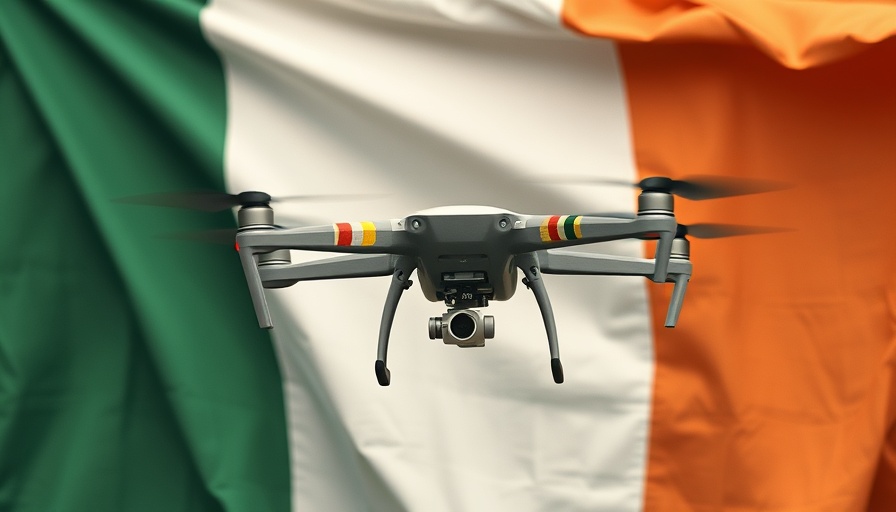
Ireland's New UAS Policy: A Roadmap for Future Innovation
On August 20, 2025, Ireland set a notable precedent in drone policy with the publication of its National UAS Policy Framework. This strategic plan aims to enhance the development of Unmanned Aerial Systems (UAS) while ensuring safety, privacy, and environmental protection. With a 10-year vision, this framework emphasizes not just regulatory compliance but also encourages enterprise growth in the drone sector.
Three Pillars of the Framework
The framework is built on three core pillars: Use of the Airspace and Planning, Compliance and Enforcement, and Enterprise and Innovation. These pillars serve to create a structured approach to integrate drones into the national transportation network securely. The Irish Aviation Authority (IAA) will spearhead initiatives to gather operational data to facilitate informed decision-making in airspace planning. Furthermore, the creation of a National Working Group will ensure clarity in designating UAS geographical zones, thereby streamlining drone operations across Ireland.
The Importance of Compliance and Enforcement
In any emerging industry, robust compliance mechanisms are crucial for sustainable growth. The Irish government plans to implement fixed-charge offences for UAS violations, adding an element of accountability to the airspace. Collaboration between the IAA, An Garda Síochána, and the Data Protection Commission will support inter-agency investigations, ensuring the enforcement of safety measures effectively.
Fostering a Culture of Innovation
Recognizing the need for innovation, the framework aims to establish a UAS Enterprise and Innovation Leadership Group, promoting an integrated information platform and designated test sites for experimental trials. This approach not only secures the future of drone technology in Ireland but also positions the nation as a hub for UAS advancements in Europe.
Alignment with EU Regulations
Aligned with EU U-space rules, which came into effect in January 2023, Ireland’s framework reflects a commitment to standardization across Europe. Full implementation of U-space services is eyed for 2030, with Dublin City Council targeting foundational services between one to three years. This alignment is essential for the seamless integration of drone technology across borders.
Industry’s Response: Opportunities and Challenges
Industry reactions have been largely positive, with companies like Manna embracing the framework as a step toward a more structured operational environment. However, challenges remain, particularly regarding the integration of drone services into existing networks. Industrial stakeholders are keen to see how pilot programs evolve and what commercial trials emerge from the framework’s initiatives.
The Future of Drones in Ireland: What Lies Ahead?
With the publication of this strategic framework, the future of drones in Ireland looks promising. By fostering a culture of innovation and ensuring compliance, Ireland aims to lead in the European drone industry. The ongoing evolution of the framework will be vital as technology and regulations continue to adapt to the rapid advancements in this field.
 Add Row
Add Row  Add
Add 




Write A Comment